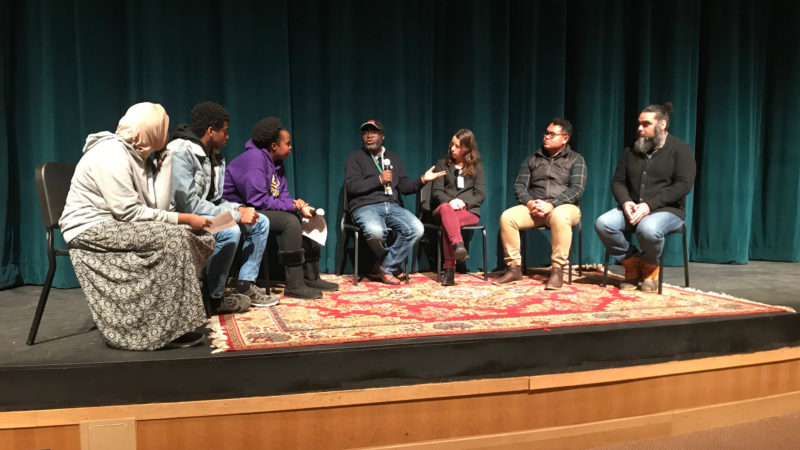Panelists and students explore the complex nature of the immigration experience
Decades ago, Waynflete came to realize the power of learning in community. From longer ago than anyone currently teaching at the school can remember, discussion has been a preferred pedagogical method. A well-orchestrated discussion facilitates the powerful learning that come from listening carefully to different perspectives. About five years ago, we began to hear from alums that while they had grown accustomed to having productive conversations about even the most charged topics while in high school, they were often finding the climate in their colleges to be hostile to such endeavors. We realized that our students needed more from their high school experience than opportunities to be in dialogue. They also needed to be taught the skills.
So in the fall of 2016, we launched The Dialogue Project, which is intended to make dialogue a keystone habit among Upper School students by explicitly teaching them skills and giving them ample, authentic opportunities to practice. Dialogue, at its best, is an approach to bridging differences among individuals to extract the wisdom inherent in a diversity of viewpoints and backgrounds and form new understandings about the topic at hand. The Dialogue Project is not a single program—it actually touches on many facets of the Upper School experience, in and outside of the classroom. It is the bedrock from which we have built the Third Thought Initiatives for Civic Engagement, which last year won a $250,000 matching leadership grant from the E.E. Ford Foundation.
This school year, we selected immigration as the topic that we would explore in the Upper School through a series of presentations and dialogues. The goal of this initiative is, through hearing stories and processing them through dialogue, to humanize the topic of immigration, which is often depicted in an abstract, disembodied, and monolithic way in the media.
The most recent event in this sequence occurred on the second day back from winter break when four adults with a diverse range of personal immigration experiences were interviewed by three students at an extended Upper School Assembly. After the assembly, students returned to their homerooms for structured dialogues about they had heard. The panelists’ powerful presentation conveyed a complex picture of the immigration experience, which, as we hoped it would, defied any conclusions other than it is at once a highly individualized and thoroughly human experience.
At the end of the month, our exploration will continue when the school’s racial awareness group hosts our MLK speaker, Safiya Khalid, the 23-year-old Somali-American who made national news when she was elected to serve on the Lewiston city council (several of our students had already met Ms. Khalid through their volunteer work at Gateway Services, which is where she works). We are excited and honored that Ms. Khalid has accepted our invitation to speak with us. After hearing her presentation, students will assemble back in their homerooms with their advisors to deepen their learning by engaging with each other.
An interesting aspect of our dialogue curriculum is that it has actually been shaped by dialogue. For example, the idea of inviting a panel to speak at assembly came from students. Our original idea for a speaker was an alum who has studied what is happening on our Southwest border. Our students with immigration experience said that they would prefer to hear from an immigrant. We arranged for a person who had immigrated to America speak, but the students pointed out that having one person speak would convey a narrow impression and likely reinforce some unfortunate stereotypes. We then recruited a panel of speakers who had very different life experiences.
That whole process underscored the value of learning in community—that there is wisdom to be tapped by examining diverse perspectives.



